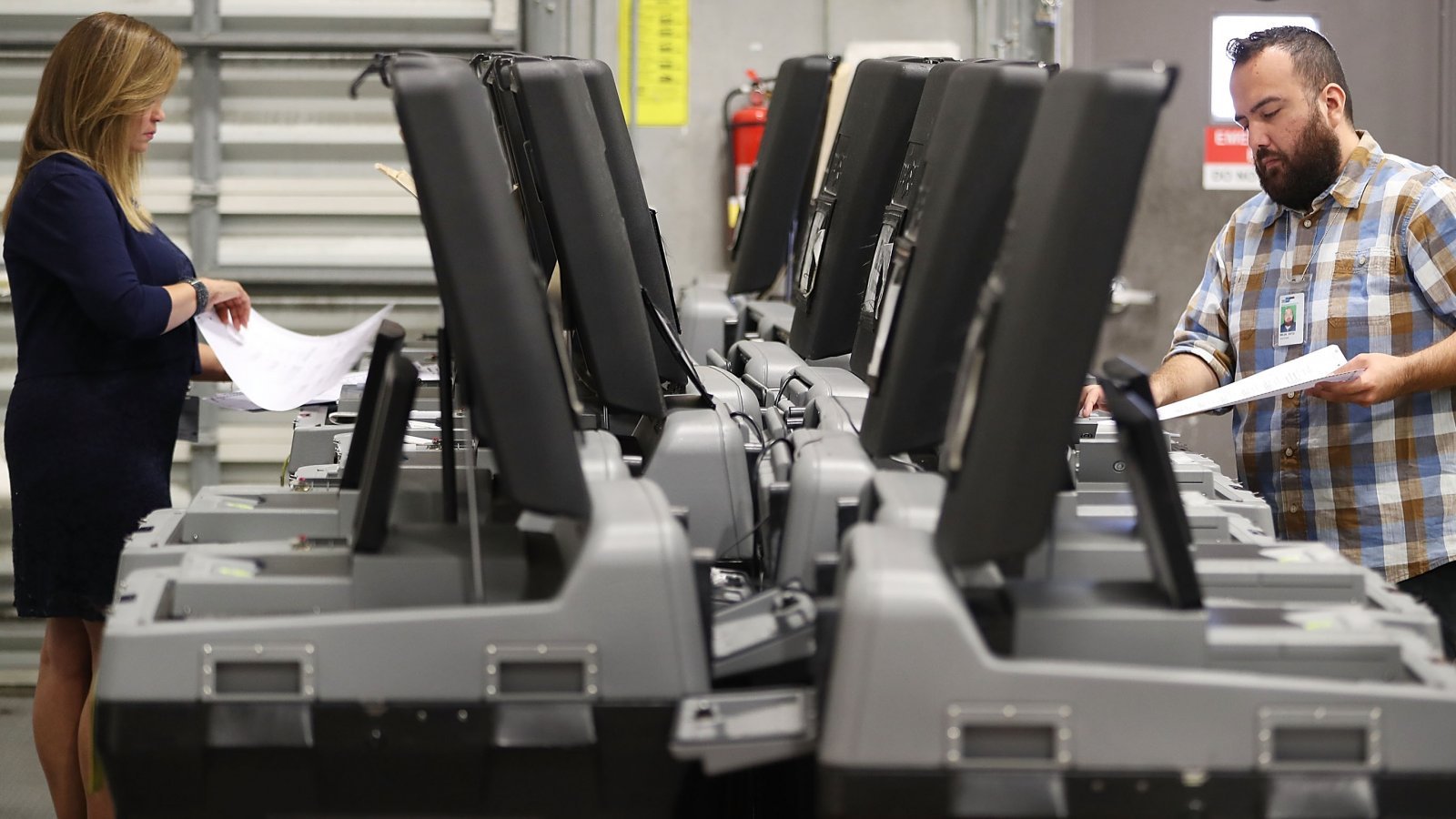
The Trump administration does not appear to be concerned about 2020 election interference because instead of adding manpower to the teams created to protect voting machines and combat disinformation, it's shrinking them.
The task forces, part of the Cyber Security and Infrastructure Agency (CISA), were assembled in response to Russian meddling in the 2016 presidential election. One focuses in part on securing election infrastructure and the other focuses on foreign influence efforts, including social media disinformation campaigns.
One of the task forces is now half the size it was a few months ago, according to two DHS officials familiar with the task forces, and there’s no indication that DHS senior political leadership will staff it up or sustain it. Instead, there are concerns it will completely wither away. The other task force also shrank significantly shortly after the midterms, according to that official, and before its members produced a thorough assessment of what happened during the 2018 elections.
“Our key allies are wondering why the U.S. is not more coordinated and not more proactive in dealing with this,” said the DHS official. “They don’t understand why the U.S. is not getting its act together.”
DHS insists the personnel moves do not signify a decreased commitment to election security, and DHS spokesperson Sara Sendek explains that the task forces were meant to be temporary.
“In the run up to the 2018 elections, DHS staffed the newly created elections task force and countering foreign influence task force by temporarily assigning personnel from across the Department. The work of these task forces continues to this day and is being institutionalized as a permanent effort. While some of the personnel who were brought on to serve on these task forces in temporary assignments have returned to their regular roles, we are also currently hiring new employees into permanent election positions to build out our team and support our efforts for 2020 and beyond,” Sendek added.
But not keeping an election security team at full strength means not giving the U.S. a running start.
“It won’t be 2016 all over again—the threat is changing,” said a former DHS official. “A thinly staffed task force working on that is not going to be equipped to keep up with the adversary.”
(...)
A few weeks before President Donald Trump’s inauguration, then-DHS Secretary Jeh Johnson determined that DHS was responsible for helping protect election infrastructure—meaning polling places, voting machines, voter databases, and all the other components that make elections happen ...
“Because it’s a very difficult task and because DHS has never done it before, there’s a lot of catching up to do,” said the former DHS official. “Even with a fully resourced effort, that would be an extremely tall task. But having it be deprioritized and lacking access to senior leadership, it’s virtually impossible.”
That said, these changes appear to reflect the White House’s lack of interest in beefing up election security, according to Paul Rosenzweig, formerly deputy assistant secretary for policy at DHS.
“If the president isn’t interested and there is no strategy, it’s no surprise that DHS is not wasting its time,” said Rosenzweig, now a senior fellow at the R Street Institute. “The failure of the White House to take this seriously is perhaps its single most significant dereliction of duty.”
(...)
Inside DHS, staffers are frustrated that emphasis on election security has dwindled as the focus on border security has exploded. One staffer told The Daily Beast that officials working on election security have discussed ways to get the message to the White House, but found no one willing to bring it up directly with Trump.
Trump’s DHS Guts Task Forces Protecting Elections From Foreign Meddling (The Daily Beast)